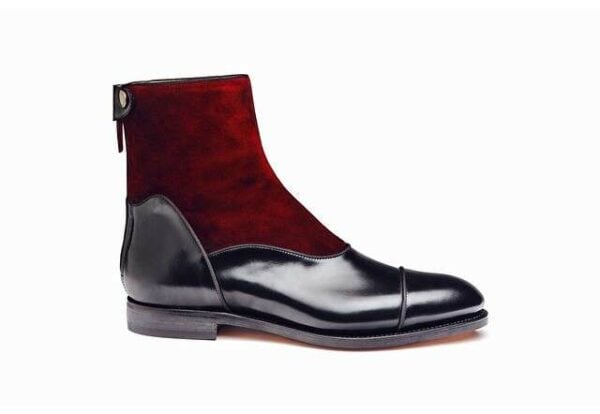
EDIT – MARCH 15TH, 2016: THE US JUST PASSED A LAW INCREASING THE LEVEL OF EXEMPTION ON PRIVATELY IMPORTED GOODS, FROM $200 TO $800 SO NOW PROVIDING THAT YOUR PURCHASE DOES NOT EXCEED $800 IN RETAIL VALUE, YOU WILL NOT BE TAXED (FOR THOSE OF YOU IN THE US) ON THE GOODS COMING INTO THE US.
Let me preface this post by saying that this is not directed at any one individual (nor at a group of them) and is not in defense to my own company’s practices. This is rather an attempt at educating those that are not fully aware of what to expect when purchasing international products online. This attempt is not only to help the consumer know what they are committing to before they do so as well as the attempt to spare many companies that deal with unruly consumers that expect the world but don’t understand that some rules cannot be bent and that many things are out of the supplying company’s hands. Let me reiterate that this is not pointed at anyone (not any of my customers at least) but rather sparked from the amount of things that I have read online directed towards other companies. As someone who owns a retail company selling products online and sees how things work from the other side of the table, I thought that I would share my point of view…..�
I hate unnecessary taxation as much as the next person does. I hate unexpected invoices with ‘money due’ as well. We all do. It’s only natural to not want to have surprise costs, to know exactly what you are paying while you are paying for it. That is the beauty of shopping in-store. There are no hidden costs. There is just what your receipt tells you. But this is not the case when purchasing online, especially when doing so internationally. The rules change as you are crossing international borders/laws/regulations etc. and this is where things start to get tricky as there is no black and white, but mainly a lot of grey. And we have international customs agents to thank for this as they are the ones creating that grey.

Considering that most of what I read in response to getting hit with custom’s fees comes from the US/Canada, I will write this post in reference to being a consumer there purchasing products sold from the EU. So, when you are on a site like my own, you should realize that most of us will list the European price. What that means is that within the EU, there is a 20% taxation on all products sold, known as VAT (Value Added Tax aka Sales Tax). This VAT will more likely than not, be built into the price shown and is the price that Europeans pay. A nice company, as not to confuse their international purchasers, will show a “NON EU PRICE” which will be the price that all of those purchasing and thus shipping outside of the EU, will have to pay. It will always be lower than the regular retail price (and should be by 20%).
So when you purchase that product at less than the EU Taxation price, this means that when the product enters your country, it will then become liable for taxation (as you cannot escape it) and thus subject to the rates of your country. This is where the you either get lucky and sneak by squeaky clean or get hit with a load of duties to pay. BUT THIS STEP IS COMPLETELY UP TO THE CUSTOM’S AGENT AND HAS NOTHING TO DO WITH THE COMPANY SELLING YOU THE PRODUCTS. We don’t want you to get taxed loads of money and then be unhappy about it. That doesn’t help us, does it? So please realize that if and when you get hit with custom duties to pay it has nothing to do with the company sending the products to you but rather your countries custom’s officials.

Okay, so now lets talk about the things that affect whether or not you get hit with duties. First let’s start with service to use for shipping, because there is a different outcome based on which company is being utilized. That being, there are the couriers (UPS, FedEx, DHL etc) and then there is the local governmental postal service such as USPS and Royal Mail. Now the couriers will give you good rates (if you ship a lot of stuff and have an account) that you can pass on to the customer (aka how other places give ‘free shipping’) and they will make sure that the package arrives very quickly. But the down side is that they are in cahoots with the custom’s officials to make sure that nothing sneaks by unnoticed. With them you are more than likely to get secure and fast shipping with a lower cost, but also more than likely to get hit with duties. (it would appear that as time goes on, it becomes more and more the case too as I am finding that many of my customer’s are getting hit when in the past they were not and I have not changed anything in the way that I do business)
Then there are the Royal Mail/USPS etc, who are very expensive, slow and many times unreliable. A company that uses them will most likely have higher shipping costs, longer quoted times and I am sure have lost a package or 100. But the upside is that you will almost never get hit with duties while using them. So a company has to pick their choice, of which both have their evils. Most go the courier route and I can bet because you can get such good rates that you are able to pass on the lowest possible rate to the customer and thus make them happy doing so (not to mention a quick service). So, you see, getting hit with a custom’s fee will also have to do with whom you use. Oh, and when a company uses a courier, the duties will come from them (the courier), as they handle it for you and then bill it to you. So it will look like extra shipping fees, when it fact it is simply the importation duties.

The last issue has to do with declaration. Many of you want companies to mark low values for you and I think that you forget a few things when asking this. 1. is that we are all registered commercial vendors and we can’t go around pretending to sell stuff for �5 when our bank balances show differently. 2. is that no matter what you declare, one must not forget that the custom’s officials are not stupid, nor were they born yesterday. We all have to declare what is in the box and it’s easy enough for a custom’s official to go onto the computer in front of him, Google the company and look at the products’ retail prices. So , while we can in theory declare �5, does not mean that you are going to go under the radar and not pay duties. An intelligent agent, will see “shoes” written on the custom’s declaration, Google the site and see the prices. And if he feels like it, he will ding you with the whole fee.
I can’t speak for other companies, but as a consumer myself, I know what it is like to be on both ends. I hate paying custom’s duties. We all do. But if I really want something that is not sold in the EU, I realize that I am going to have to suck it up and pay them. If I get lucky, I will sneak by them, but I don’t often bank on that. I hope that this has helped some people realize what actually goes on when purchasing from other countries and that all realize that this is in no way directed at anyone but rather trying to help people make educated decisions so that there are no nasty surprises waiting at the end of them!
Edit: a blog reader just left another important bit of information that is useful so I though that I would share it.
“Justin, one additional bit of info to add. If the shipper uses a courier, Fed Ex, UPS, DHL etc, the carrier ALSO charges a customs clearing fee. They charge the recipient! So you will be charged duty, tax, and the clearing fee. Postal service does not charge a customs clearing fee. You may get charged duty and the taxes, sometimes, but not always, as some stuff just slips through. With a courier it ALL gets declared / cleared en route via computer, so duty & tax gets added even before a customs official sees the package. IF pre cleared en route, it never sees the finger tips of a customs official.”

Part 2 – 7th July 2015

In no way is this post directed at any one individual or a group of them. This is simply to do my best to educate, not only the consumer but the retailer so that we are all on the same page, because after all, we don’t want to charge you taxes, but it is not us doing so, it is your government.
We have moved into a pure digital age where the internet rules the world, especially in the retail industry. Every company is shifting their culture to focus on the online side of things, even the big department stores that once prided themselves and relied on in-store sales and customer service. Gone is that day and every company is now implementing webshops so that they don’t miss the chance to gain a sale 10,000 miles away. I touched on this subject a few months back (as you can read HERE) but feel that I need to explain a bit more on it as I am getting more and more customers confused by their custom’s invoices received after purchasing my products, and know that I am not the only retailer that is facing this same phenomenon as it seems to be a growing issue in the shoe industry (from what I have heard and seen on the forums).

With the ever growing internet, it now means that you could be sitting in the most secluded corner of Alaska and be purchasing some Spigola shoes from The Armoury in Hong Kong with one click of a button. Who would of thought of that 20-30 years ago?! The problem however is that quite often the consumer is unaware of the implications of importing a foreign product into their local economy. Some consumers that have very strict governments that want to protect their country, i.e. Singapore, Switzerland and Norway, and will be quite clued up to exactly how their country’s import taxation works. Others, like many of those in the US and Canada are not as aware as there are (were) not only a lot of loopholes but up until recently they weren’t very strict on the act of adding duties to international purchases. This seems to be quickly and drastically changing however and it would appear that the US (in particular) is cracking down as more consumers from inside the country purchase foreign made/sold products.
That being, allow me to explain how things work….again. Okay, so first and foremost a retail company never charges you “customs taxes or duties.” These are imposed by the local government authority for importation taxation (i.e. customs). But I do know that it can be confusing when the invoice is coming from the courier. So allow me to explain why that happens. You see, the major couriers like DHL, UPS, FedEx etc are actually in cahoots with the custom’s office and the reason that they are able to ship so incredibly fast on international purchases is because they will actually fast track your package by paying the duties for you, only to invoice you later for them or when they are delivering them to you. I can see how it may come from the company shipping you the products, but I can assure you that it is not.
Now there are all kinds of loopholes like undervaluing things or listing them as samples or gifts (when they are in fact not) but what you guys have to understand is that it is not legal to do this (it is fraud) and to ask a company to do that is asking them to risk themselves in order for you to dodge taxes. Some are happy to do this, but many companies that care about their company, won’t and shouldn’t. I hate taxes as much as the next man does, but I know that they cannot be avoided so I just expect them to come and then pay them�when they do (as everyone else should).

The real concern and issue at the moment within the shoe industry is the usage of the governmental postal service to ship the shoes. This could be Royal Mail, USPS or whatever equivalent. I don’t know why but a lot of times, if shipped with these companies, custom’s duties do not seem to get imposed (don’t ask me why as I don’t know). So naturally customers want this route in the hopes to not get hit with taxes and thus make their foreign products a whole lot cheaper. Now let me explain why I don’t use them and why probably many others don’t either.
You see, the Royal Mail service is mainly for small packages. Once it goes over 2kg or is tracked at all, it becomes a part of the Parcel Force service (a courier that works with the governmental postal service). And the second that you have a tracking or over 2kg package (as most shoe ones are), the prices go astronomically high. With couriers you can set up accounts and get lower rates depending on how many items you ship. Also the governmental services will never be as fast as the big couriers and if a package is lost, forget about ever getting it back or having good customer service on the other end.
So, I will use UPS or DHL and be able to charge a very low rate to the consumer (with the chances of getting taxed) but could also use Royal Mail and bump up the costs to the consumer 2.5 times and have the chances of not getting taxed (but that is not a guarantee). The thing is that a foreign consumer, no matter where they are, should not expect to ever get a deal by buying a product from another country. And if you did, and do for the most part, simply consider yourself lucky as it is not the norm to avoid taxes. And I think that the US/CA governments are wising up to this and are more heavily and frequently now imposing the taxation so that they can better protect the local economies.
This is an issue that affects not only consumers and retailers so please pass this post on in the hopes to educate so that we can all be on the same page.

















As clear as it gets. Thank you, Justin.
Really informative, wish I had read a similar post before having to pay for customs and the mainly the clearing and handling fees. Some vendors offer you the possibility to pay upfront for customs and be done with it. Don’t make the same foolish mistake I did, do it!
A very accurate summary of the international online purchase reality. I will always choose trackable post if given the option. As mentioned, the couriers are able to speed their packages through because they collect every penny of duties and taxes (sometimes more) every single time. Post takes a week from just about anywhere for packages shipped to Canada, and your chances of having no duties or taxes collected are very good indeed. I can wait a week.
Don’t forget credit cards adding currency translation fees, either.
As someone who has lived in a bunch of countries over the years, you come to accept these types of fees as the cost of doing business. I tend to look at it as a bonus if you somehow get away without paying customs/clearing/handling fees rather than being disappointed if they wind up dinging you for the same. I just got a pair of shoes (love them, by the way) from Justin delivered to South Africa and while I would have preferred to have avoided the South African customs charges, I still paid less in customs here than I would have paid for VAT in the UK!
thanks for sharing!
My Fitzpatrick shoes got delivered to Dubai with no additional charges. FYI
My (superb) JF shoes get (regularly) delivered within 24 hours with DHL to Geneva, Switzerland and I usually pay approx CHF 40 (25£) so can’t complain! As a regular eBayer I have recently had a case of being “forced” to use eBay’s Global Shipping program with prepaid duties and taxes that represent at least double what you should be paying! The seller has since stopped using this service so be warned!
He doesn’t mention that Swiss Customs calculates the amount of postage or shipping cost as part of the amount to be taxed. That he only pays 40 Swiss Francs to a private courier for a pair of shoes is simply not believable. Swiss Customs charge two fees: 1. Import tax and 2. Administrative fee. The latter is at least 25 Swiss Francs. If a private shipper is employed by the seller the shipper will often charge its own administrative fee. That is avoided when the package is shipped by Royal Mail.
Grenson using UPS charges 20% tax on invoice as well but for me they were kind enough to refund it (im not paying a tax when i dont have to!)
they must have accidentally charged you VAT and therefore refunded you……UPS does not charge a 20% tax…
This post needs to be shared to everyone who’re into online shopping. I learned my lesson the hard way when I ordered a branded bag from the US to Germany and later had to pay a crazy amount of money for taxes :-s
Kisses,
Adrian FS.
Thanks for sharing Stuart. What you say makes sense.
I live in Chicago,How would some one like me go about buying these shoe’s?